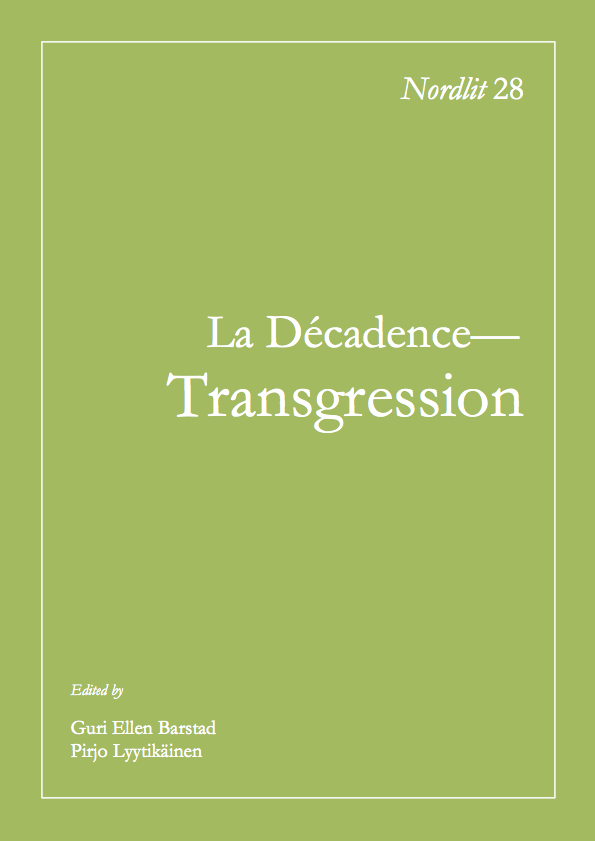"Ne me touchez pas!": Transgressions décadentes d’une parole biblique
DOI:
https://doi.org/10.7557/13.2051Keywords:
Bible, palimpseste, réécriture, héritage, profanation, dévoiement, crise du langage, balbutiement, inquiétude métaphysiqueAbstract
By following the use made by playwrights and writers around 1900 of a famous biblical sentence (John XX, 16-17), this essay hopes to outline some major features of the decadent imagination and poetics in Europe. From Balzac onwards, Jesus' sentence to Mary Magdalene after his resurrection ("Do not touch me") is used on stage (Ibsen, Maeterlinck, Lorrain, Sardou, D'Annunzio) or by novelists (Rachilde) in the context of an encounter between the living and the dead. The famous sentenceis now very often pronounced by women on the stage - and thus reflects the threatening aggression of men, in the context of violence between the sexes. Far from conveying the Bible's message of hope and resurrection, the considered texts lead it astray on the paths of pessimism and despair. Yet their issue is not only philosophical. They also reveal the poetics of Decadence: pronounced only once in the Bible, the phrase becomes almost a leitmotif in the productions of 1900 and reveals a deep mistrust in the power of language. Profanation of the holy message, distortion of the Word, stammering pronunciation - some of Decadence's poetics and aesthetics are illuminated through the uses (and misuses) of this one single, but famous, sentence.
Downloads
Published
2012-03-26
How to Cite
Ducrey, Guy. 2012. “‘Ne me touchez pas!’: Transgressions décadentes d’une parole biblique”. Nordlit, no. 28 (March):141-57. https://doi.org/10.7557/13.2051.
Issue
Section
Articles









